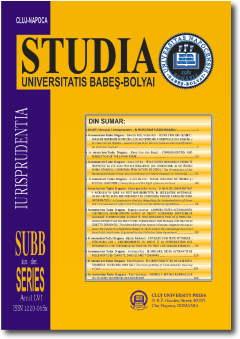SECULARISM AT SCHOOLS AS A TOOL FOR SOCIAL INTEGRATION:THE APPROACH OF THE EUROPEAN COURT OF HUMAN RIGHTS
SECULARISM AT SCHOOLS AS A TOOL FOR SOCIAL INTEGRATION:THE APPROACH OF THE EUROPEAN COURT OF HUMAN RIGHTS
Author(s): Adam JakuszewiczSubject(s): Human Rights and Humanitarian Law, EU-Legislation, Court case
Published by: Studia Universitatis Babes-Bolyai
Keywords: freedom of religion; social integration; republican secularism; liberal-pluralist secularism; religious diversity;
Summary/Abstract: When examining the cases on freedom of religion in the field of education, the European Court of Human Rights increasingly adopts the conception of hard or republican secularism. This approach has far-reaching implications for the Court’s understanding of social integration as a legitimate ground for the restriction on individual’s freedom. The judgement in Osmanoğlu and Kocabaş v. Switzerland and the cases on wearing of religious attire at school demonstrate that despite its claim to neutrality, the republican conception of secularism has its inherent presuppositions about what society should look like and which values such a society should embrace. In consequence, the application of this conception results in standardisation and homogenisation of the society according to secular and thus non-neutral ethos. This outcome is difficult to reconcile not only with equal respect for individual freedom of religion and moral autonomy, but also with general principles underlying its axiological structure, such as pluralism, tolerance, and broadmindedness.
Journal: Studia Universitatis Babes Bolyai - Iurisprudentia
- Issue Year: 66/2021
- Issue No: 1
- Page Range: 15-41
- Page Count: 27
- Language: English

